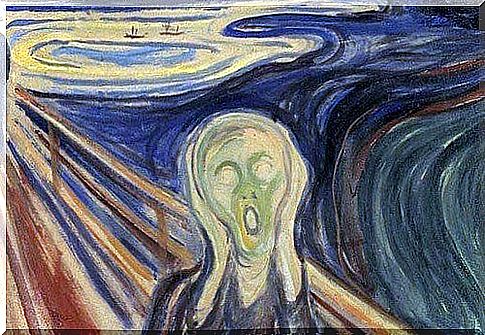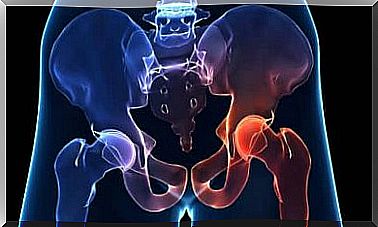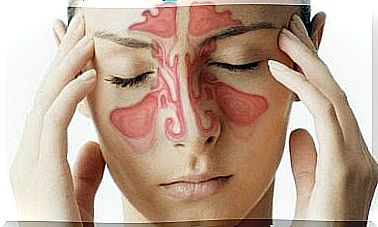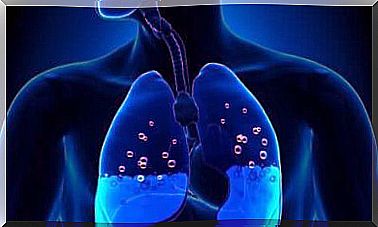Panic Attacks: What Are They And How To Deal With Them?
Despite the fact that panic attacks are uncontrollable, it is important to know how to recognize them to try to calm us down, by telling us that it will pass.

Panic attacks are more common than you might think. They also affect all types of people, walking in the street, taking the bus, at work or just sitting down.
One then suddenly feels that several frightful sensations are triggered: tachycardia, tingling in the hands and feet, goose bumps… It is then impossible to control either the balance or the sight, which becomes more and more blurred.
The hands are sweating and we feel in an unbearable state of alert. As if we had just witnessed an explosion or some other disaster. We have difficulty breathing, abdominal discomfort, we have the impression of being outside ourselves, and we suddenly feel the fear of dying.
However, there is no explosion around or any other event that causes us to be alarmed. Everything is calm. What’s going on ? Where does this feeling of fear come from that suddenly invades us, without warning, and so violently, making us feel terribly bad? Yes, it is a panic attack.
During panic attacks, the individual suddenly experiences a feeling of fear, panic and anxiety which cannot be controlled. The symptoms are those described above, but also:
- dizziness
- chest pain
- excessive sweating
- abdominal pain
- difficulty in breathing
Often times, the fact that these symptoms are uncontrollable during a panic attack only accentuates the fear of those who suffer from it even more. Sometimes one can dream that one is having a panic attack, and these nightmares seem very real and are therefore disturbing.
Panic attacks are more common than you might think. If we ask the question among our family members, we will surely find someone who has already experienced a panic attack. These seizures may occur only once in a person’s life, or recur multiple times.
What are panic attacks caused by?
Panic attacks are often related to emotional situations that a person has to go through and which in most cases cannot be controlled.
Breaking up, losing your job, fear of failure, fear of independence among young people, etc., can therefore trigger these panic attacks. Sometimes traumatic childhood experiences can also lead to these seizures.
Certain medications can also be the cause of these panic attacks. The same is true of phobias, such as dizziness, fear of water or fear of enclosed spaces. There are also other triggers, such as certain diseases linked to a biological disorder. For example, hypothyroidism or obsessive-compulsive disorder.
Abstinence and overexposure to certain substances, such as nicotine, cannabis or caffeine are other triggers for these seizures, among others.
Nevertheless, it is possible to control these crises, and of course, to overcome them.
Do you know how to overcome them?
1. As a first step, it is strongly advised to seek psychological help. In many countries, it is not very common to attend this kind of therapy. However, they can be of great help in treating anxiety because they allow patients to learn more about their fears and learn to identify them.
2. It is important to know how to realize that you are in the middle of a panic attack. To tell yourself that it only lasts a moment, to try to calm down and to know that the fear you feel is only fleeting. That nothing bad is going to happen.
3. It’s good to try and distract yourself. Staring at a distant object or reading a sign from it will indeed help you regain your balance.
4. Learn to control your breathing: breathe slowly at a rate that will bring about a state of relaxation.
5. Do not consume substances that can excite the nervous system, such as caffeine and nicotine.
6. Learn to recognize panic attacks and learn to stop worrying about them.
7. Take exposure therapy: calmly and under the supervision of a professional, these therapies involve exposing yourself to things that are a source of phobia so that you no longer fear them.
8. Also do medical examinations. This will tell you if the panic attacks are due to an organic problem, a disease or a hormonal disorder, for example.
9. Also see a psychiatrist. He may indeed prescribe sedatives that will help you fight anxiety.
10. Don’t think that you are going crazy or crazy, or that you are unbalanced, and run away from depression.
11. Maintain an active lifestyle. Exercise and don’t miss out on sleep.
12. Learn relaxation techniques. They can indeed be used to control your fears in the face of a panic attack.








